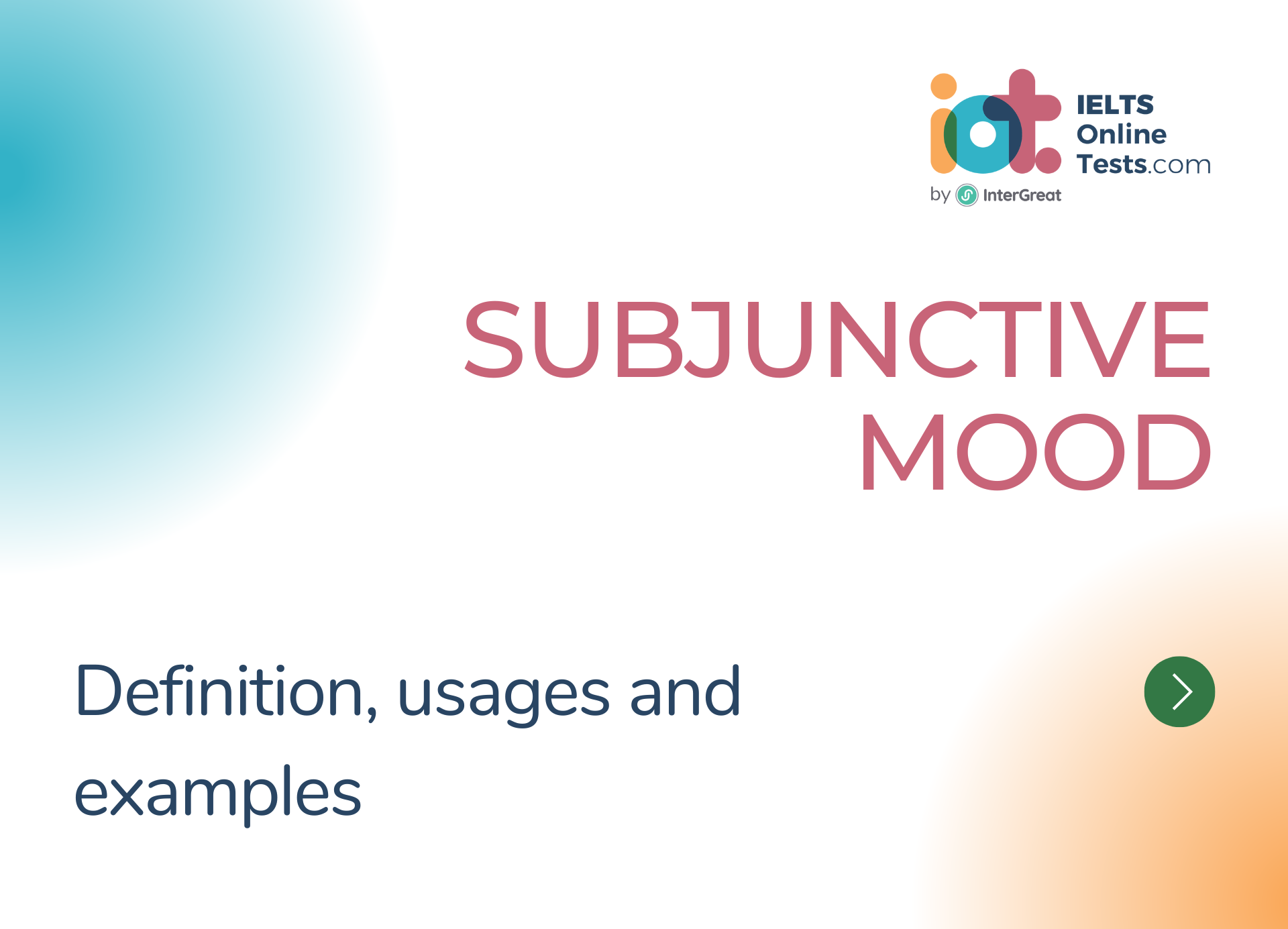
Moods of Verbs - Subjunctive Mood
The subjunctive mood is used to express hypothetical, unreal, or contrary-to-fact situations, wishes, recommendations, and suggestions. It is often used in formal or literary contexts, and its usage is more limited in modern English.
Here are some key points about the subjunctive mood:
Hypothetical or Unreal Situations: The subjunctive mood is used to express hypothetical or unreal situations that are contrary to fact or unlikely to happen.
- Example: "If I were rich, I would travel the world."
- The verb "were" is used instead of "was" to indicate a hypothetical condition.
- More examples:
- If I were a bird, I would fly in the sky.
- I wish I were taller.
- It's as if she spoke a different language.
Wishes and Desires: The subjunctive mood is used to express wishes, desires, or hopes.
- Example: "I wish I were there with you."
- The subjunctive form "were" is used instead of "was" to indicate an unreal or desired situation.
- More examples:
- I wish I had more time to travel.
- May he find peace in his heart.
- If only she were here with us.
Recommendations and Suggestions: The subjunctive mood is used to express recommendations, suggestions, or requirements.
- Example: "It is important that he arrive on time."
- The verb "arrive" is in the subjunctive form to indicate a necessary or desired action.
- More examples:
- It is important that he arrive on time.
- They requested that she bring her ID.
- I suggest that you be more careful.
Certain Phrases and Expressions: The subjunctive mood is often found in certain fixed expressions, formulaic phrases, and idiomatic constructions.
- Example:
- "Long live the king!"
- "God bless you."
- Example:
Verb Forms: In the subjunctive mood, the verb forms differ from the indicative mood.
- The subjunctive form of the verb "to be" in the present is "be," regardless of the subject.
- Example: "It is important that he be on time."
- Other verbs often use the base form of the verb without the addition of -s or -es for third-person singular subjects.
- Example: "She requests that he speak to her."
- More examples:
- It is crucial that he be present at the meeting.
- They insisted that she take the job.
- It's recommended that you eat a balanced diet.
- The subjunctive form of the verb "to be" in the present is "be," regardless of the subject.
It's important to note that the subjunctive mood is less commonly used in modern English, and in many cases, the indicative mood is used instead. However, the subjunctive mood is still encountered in certain fixed expressions, formal writing, and specific grammatical structures. Understanding the subjunctive mood allows you to recognize and interpret these constructions in context.




